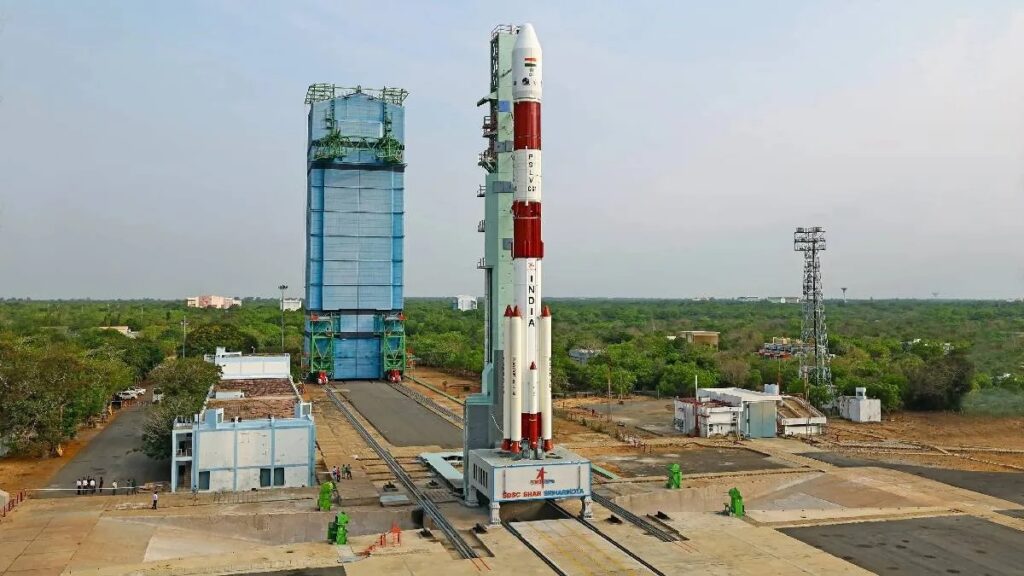The Indian Space Research Organisation (ISRO) encountered a setback when its reliable Polar Satellite Launch Vehicle (PSLV) failed during its 101st launch, the PSLV-C61 mission. The rocket, launched from the Satish Dhawan Space Centre in Sriharikota, was intended to place the EOS-09 Earth observation satellite into a sun-synchronous polar orbit. However, about six minutes after liftoff, a malfunction occurred in the third stage’s solid motor, causing a drop in chamber pressure and forcing the mission off its planned trajectory. This malfunction prevented the satellite from reaching its intended orbit.

The EOS-09 satellite, weighing approximately 1,696 kg, was equipped with synthetic aperture radar technology designed for all-weather, day-and-night monitoring of Earth’s surface. Its applications included agricultural monitoring, forestry management, soil moisture detection, disaster response, and surveillance.
This failure marks the first time in eight years that the PSLV, considered ISRO’s dependable workhorse, has not succeeded in deploying its payload. ISRO Chairman V. Narayanan confirmed that while the first two rocket stages operated normally, the third stage anomaly led to the mission’s failure.
This incident follows a previous partial failure earlier this year when the NVS-02 navigation satellite was unable to reach its correct orbit due to an issue with the satellite’s liquid apogee motor. ISRO has initiated a detailed investigation to understand the cause of the PSLV-C61 failure and plans to take corrective steps to avoid such problems in future launches.
Despite the setback, the PSLV remains a central part of India’s space launch capabilities, and ISRO is committed to continuing its satellite deployment missions.
